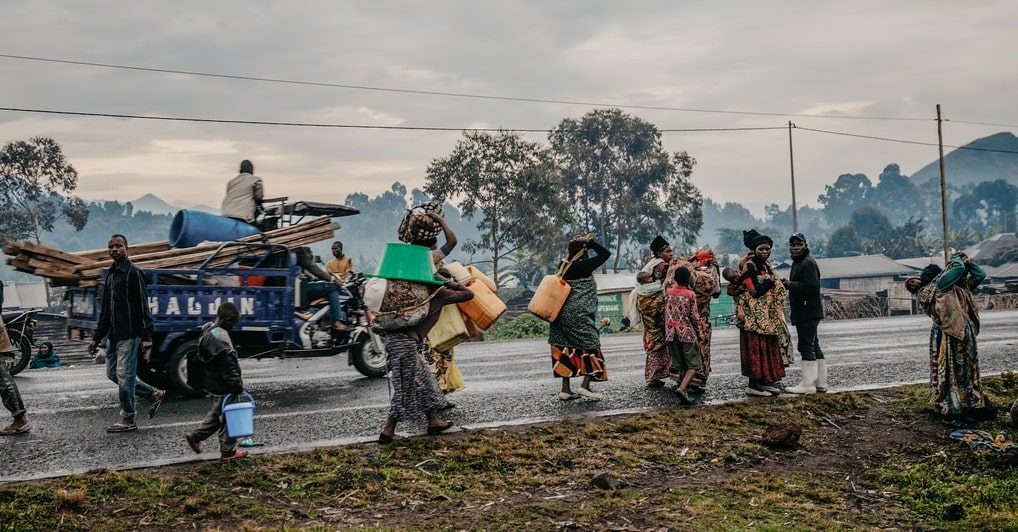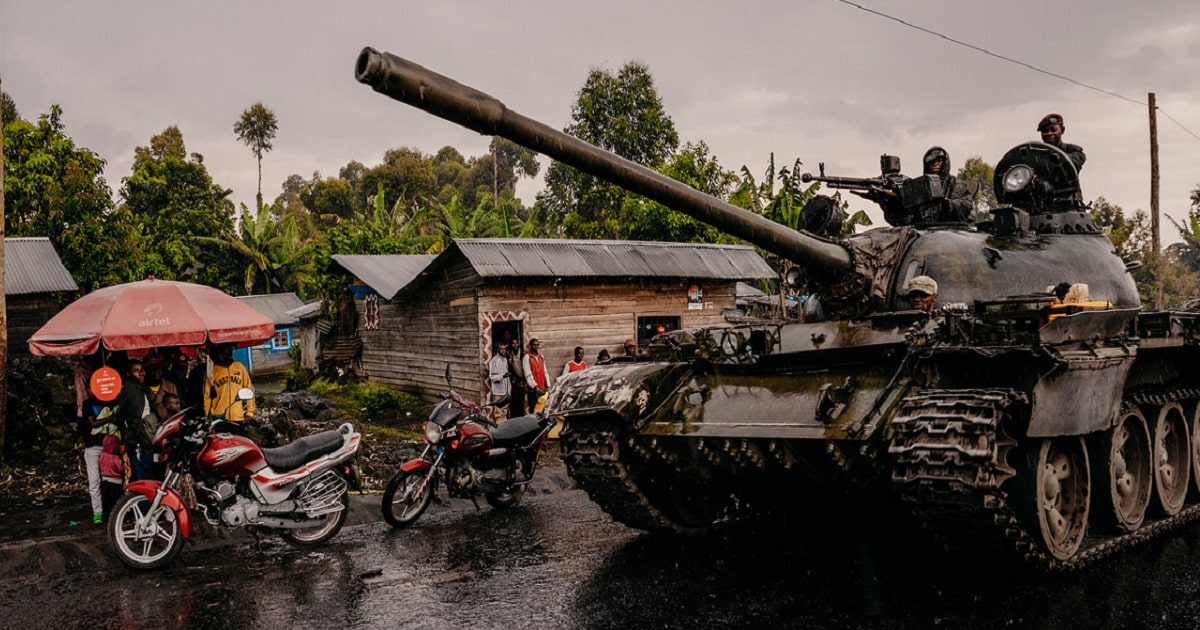37,000 People Displaced In 4 days amid a resurgence of fighting in North Kivu
By: Tom Peyre-Costa, NRC Regional Media Adviser
West and Central Africa: tom.peyrecosta@nrc.no,
WhatsApp: +33 658 518391
Renewed clashes between the Armed Forces of the Democratic Republic of the Congo (FARDC) and presumed M23 fighters were reported in Rutshuru Territory on 22 May. Over the past four days, violence has spread to Nyiragongo Territory, forcing at least 37,000 people to flee their homes. Displaced families who have found shelter in local churches and schools near Goma are in dire need of humanitarian assistance, warn the Norwegian Refugee Council (NRC) and the International Rescue Committee (IRC).
“Thousands of families have been forced to flee the renewed wave of violence. Some had to walk for more than 20 kilometres to arrive in the outskirts of Goma, and more are reported to be on their way,” said Caitlin Brady, NRC’s country director in the Democratic Republic of the Congo (DRC). “This morning NRC staff visited sites where the displaced people are arriving. They urgently need food, drinking water, latrines, and emergency shelter.”
The International Rescue Committee states that it is closely monitoring the situation on the ground. According to Adama Coulibaly, IRC’s Country Director, “the objective, for now, is to protect our teams who are providing humanitarian assistance in the areas affected by the clashes.” He added that “whilst today there were less clashes between the FARDC and the M23, the situation remains uncertain.”

On the border with Uganda, at least 19,000 people remain deprived of vital assistance, as heavy fighting has disrupted aid delivery. NRC and IRC voice their concerns that the intensity and rapid spread of violence to neighbouring areas will severely hamper humanitarian access to already vulnerable families.
“Unhindered access and timely delivery of humanitarian assistance is fundamental for the protection of all displaced and conflict-affected populations. This new escalation of violence is threatening the humanitarian community’s capacity to provide timely support in a region where 1.9 million people have already been displaced. Proper assistance to families in need can only be delivered on the grounds of lasting peace and stability,” said Brady.
In Nyiragongo territory, since 24 May, 10,855 individuals from Kibumba have fled to Kibati, Kanyaruchinya and Goma (Intersos/UNHCR).
In Rutshuru territory, about 26,000 people have been displaced since the resumption of violence on 22 May. 1,500 of them fled to Uganda and the remaining 24,000 are spread across villages in Rwanguba Health Zone (OCHA).
The renewed fighting occurs amid the peace talks in Nairobi, where all parties to the conflict are discussing security arrangements. NRC and IRC call on all actors to seek solutions for a lasting peace not only in DR Congo but also in the wider Great Lakes Region. They must do everything in their power to prevent the return to full-scale war in the region.









